On 25 June, this one-day workshop will bring together scholars from around the world to celebrate the work of Professor Christian List, who recently moved from LSE to the Munich Center for Mathematical Philosophy at LMU Munich.
Christian List is a philosopher working at the intersection of philosophy, economics, and political science, with a particular focus on individual and collective decision-making and the nature of intentional agency. Having spent many years as a central figure in the LSE Philosophy faculty, Prof List moved this year to the Munich Center for Mathematical Philosophy at LMU Munich. This workshop will celebrate his work and his time at LSE.
This event will take place online via Zoom. Attendance is free and open to all but pre-registration is required. The Zoom link will be shared with registered attendees via email.
Programme
Morning session: Freedom |
|||
| 9:00–9:50 | Bryan Roberts (LSE): “The symmetry argument for higher-level causation: A defence of List” Abstract
Chair: Anna Mahtani |
||
| 10:00–10:50 | Zsuzsanna Chappell: “Authenticity and Choices in Mental Illness” Abstract
Chair: Anna Mahtani |
||
| Break | |||
| 11:10–12:00 | Jonathan Birch (LSE): “List’s ‘Many Worlds’ Theory of Consciousness” Abstract
Chair: Alex Voorhoeve |
||
| 12:10–13:00 | Philip Pettit (Princeton): “Exhortation, Responsibility and Freewill” Abstract
Chair: Alex Voorhoeve |
||
| Lunch | |||
Afternoon session: Reason |
|||
| 14:00–14:50 | Natalie Gold (LSE): “Framing, Reasons and Rationality” Abstract
Chair: Richard Bradley |
||
| 15:00–15:50 | Kai Spiekermann (LSE): “Jury Theorems, Diversity and Deliberation” Abstract
Chair: Richard Bradley |
||
| Break | |||
| 16:00–16:50 | Franz Dietrich (CNRS): “Dynamically Rational Judgment Aggregation” Abstract
Chair: Alex Voorhoeve |
||
| 17:00–17:15 | Richard Bradley (LSE) – An appreciation of List | ||
Abstracts
Jonathan Birch (LSE): “List’s ‘Many Worlds’ Theory of Consciousness”
Christian List has recently proposed a bold and unorthodox “many worlds” theory of consciousness. It is a piece of received wisdom that the actual world contains many conscious subjects (at least billions of them), and I am just one among many. List goes against this received wisdom. On his view, the actual world contains a single conscious subject, me. This is called a “first-personally centred world”. But modal realism is true, and there are many parallel first-personally worlds with the same third-person facts, and these other worlds are just as real as my own. You are in a different one. I will subject this extraordinary view to critical scrutiny.
Zsuzsanna Chappell: “Authenticity and Choices in Mental Illness”
Mental illness might be supposed to undermine the possibility of authentic preference-formation, choice or even emotion. It can equally undermine a person’s ability to differentiate between their own authentic self and their “disordered” self; known as the self-illness ambiguity. This becomes especially troubling when agents carry out actions which can be seen as repugnant by others, such as practicing self-harm or self-starvation, or agreeing to controversial treatment methods such as electro-convulsive therapy. This can be a profoundly disorientating experience and it also undermines the perceived status of the mentally ill for moral agency. In this paper I argue that those with mental illness can live authentic lives and flourish not in spite of, but regardless of their mental illness.
Franz Dietrich (CNRS): “Dynamically Rational Judgment Aggregation”
Abstract: A key goal in judgment aggregation theory has always been to make collective judgments rational. So far, rationality has been understood in purely static terms: as coherence of judgments at a given time, where ‘coherence’ could for instance mean consistency, or completeness, or deductive closure, or combinations thereof. By contrast, this paper studies whether and how collective judgments can be dynamically rational, so that they respond well to new information, i.e., change rationally when information is learnt by everyone. Formally, we call a judgment aggregation rule dynamically rational with respect to a given revision operator if, whenever all individuals revise their judgments in light of some information (a proposition), then the new aggregate judgments are the old ones revised in light of this information. In short, aggregation and revision commute. We establish a general impossibility theorem: as long as the propositions on the agenda are sufficiently interconnected, no judgment aggregation rule with standard properties is dynamically rational with respect to any revision operator satisfying mild conditions (familiar from belief revision theory). The theorem is a counterpart for dynamic rationality of known impossibility theorems for static rationality. Turning to possibilities, the paper then makes a first attempt to restore dynamic rationality, by showing that certain rules (‘hierarchy rules’) generate dynamic rationality with respect to special (‘hierarchical’) revision operators. Like the familiar ‘priority rules’, such rules are guided by priorities between the propositions.
Link to paper: http://franzdietrich.net/Papers/DietrichList-DynamicallyRationalJA.pdf
Natalie Gold (LSE): “Framing, Reasons and Rationality”
Philip Pettit (Princeton): “Exhortation, Responsibility and Freewill”
Abstract: Christian List’s account of freewill is a novel and exciting contribution to a particular variety of compatibilism. But, mainly with a view to eliciting his response, I would like to sketch an alternative, compatibilist approach of rather a different kind. This starts from our practices of ex ante exhortation and ex post censure in the domain of intentional, voluntary actions. It may be consistent with Christian’s but unlike his (on my first reading), it explains why we take actions to be free independently of how they are characterized, not just free under suitable descriptions.
Bryan Roberts (LSE): “The symmetry argument for higher-level causation: A defence of List”
Abstract: In his landmark recent book on free will, Christian List defends a symmetry argument that causal relations are not fundamental: “If the temporal order is not absolute, but only relative to the reference frame, then, it seems, causal relations themselves can no longer be absolute, but only relative to a reference frame” (List 2019, p.128). List concludes that “traditional notions of cause and effect are not particularly well suited for fundamental physics”, and therefore that they are higher-level. In this talk I will clarify List’s claim, and show how it is indeed supported by modern physics, although its ultimate fate depends on at least two open problems: the quantum measurement problem, and the nature of black holes.
Kai Spiekermann (LSE): “Jury Theorems, Diversity and Deliberation”
Abstract: Does prior deliberation increase the epistemic quality of majority voting? This depends on whether the deliberators have private information to share (they are, in a certain sense, “diverse”) and on how the information is aggregated. Without prior deliberation, voting can display three epistemic failures: (i) information held by only a few voters is underappreciated, as it affects few votes; (ii) the strength of a voter’s information is neglected, because of “one man one vote”; (iii) complementarities between the information of different voters are neglected, since votes do not synthesize information of different voters. We present a simple model that captures some of these failures, and use simulations to confirm the hypothesis that deliberation can help to avoid the failures under suitable circumstances. The model also helps us to investigate how the assumption of competence homogeneity in Dietrich and Spiekermann’s (2013) Competence-Sensitive Jury Theorem can be relaxed. Our results show that one way to conceptualize diversity is as heterogeneity in sources. Finally, we discuss links to Landemore’s and Page’s work on the epistemic benefits of diversity.




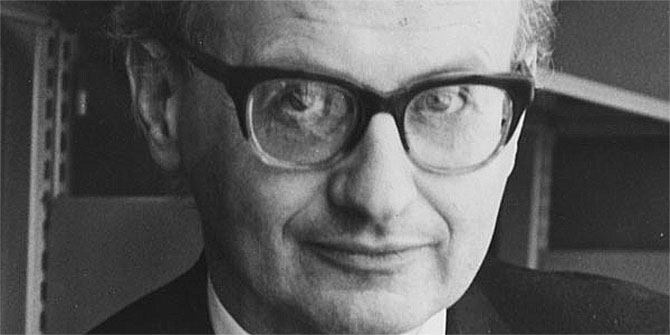
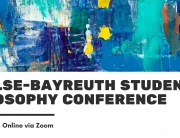
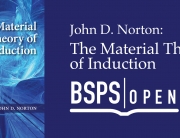

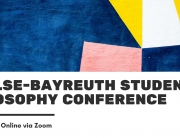

























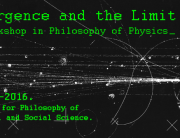
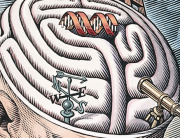



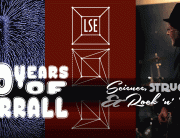




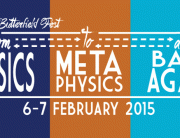

Connect with us
Facebook
Twitter
Youtube
Flickr